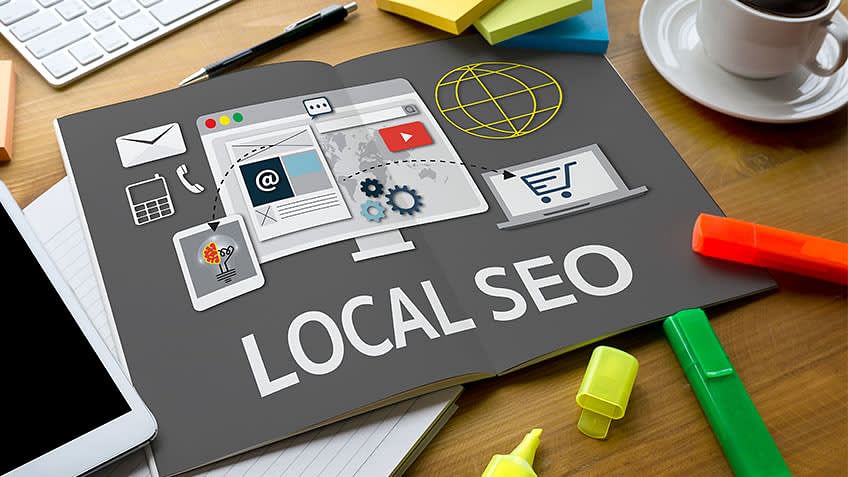What is the most effective strategy for local SEO?

As a business owner, one of the most important things you can do to attract local customers is to invest in local SEO. Local SEO is optimizing your website and online presence to rank higher in search results for queries related to your business in your local area. It’s a critical part of any digital marketing strategy and can help your business grow and thrive.
But with so many different tactics and strategies available, it can take time to know where to start. In this blog post, we’ll explore some of the most effective strategies for local SEO.
Optimize Your Google My Business Listing
Google My Business is a free tool provided by Google that allows businesses to manage their online presence across Google, including in search results and on Google Maps. Optimizing your Google My Business listing is one of the most effective things you can do to improve your local
SEO.
Ensure your listing is up-to-date and complete with accurate information about your business, including your name, address, phone number, website, and hours of operation. Add photos, videos, and other multimedia content to help potential customers understand your business.
Encourage customers to leave reviews on your Google My Business listing. Reviews are a critical factor in local SEO, and businesses with more and higher-quality reviews tend to rank higher in search results.
Build Local Citations
A citation is any mention of your business online, including your name, address, and phone number. Building local citations is an essential part of local SEO. It signals to search engines that your business is in a specific geographic area. It helps you rank higher in local search results.
Start by listing your business in online directories like Yelp, Yellow Pages, and TripAdvisor. Ensure your business information is consistent across all directories and that you’re listed in directories relevant to your business and location.
Optimize Your Website for Local Keywords
Keyword research is identifying the words and phrases people use to search for your products or services. Once you’ve identified your target keywords, optimize your website to include them in your content, meta descriptions, and page titles.
Make sure you’re using location-based keywords, such as your city or neighborhood, to help signal to search engines that your business is relevant to local search queries.
Get Backlinks from Local Websites
Backlinks are links from other websites that point to your website. They’re an essential factor in search engine rankings, as they signal to search engines that your website is authoritative and relevant.
To build backlinks, contact other local businesses and websites in your area and ask if they’d be willing to link to your website. Consider offering to write a guest post or collaborate on a local event or project.
Use Schema Markup
Schema markup is a type of structured data that helps search engines understand the content on your website. Using schema markup can help your business rank higher in local search results by providing search engines with more detailed information, including your address, phone number, and business hours.
Many different schema markup types are available, including LocalBusiness and Organization. Choose the schema markup that’s most relevant to your business and implement it on your website.
Optimize Your Website for Mobile
More than half of all internet traffic now comes from mobile devices, so your website must be optimized for mobile users. A mobile-friendly website is not only essential for user experience, but it’s also a ranking factor in search engine results.
Ensure your website is responsive, meaning it adapts to the screen size of the device it’s being viewed on. Use large, easy-to-read fonts, and make sure your website loads quickly on mobile devices.
Create Local Content
Creating content relevant to your local audience is another effective strategy for local SEO. Creating content specific to your city or region can attract local visitors to your website and improve your search engine rankings.
Consider creating blog posts, videos, or other content highlighting local events, landmarks, or businesses in your area. You can also create how-to guides, tutorials, or relevant educational content for your local audience.
Use Social Media to Connect with Local Customers
Social media is another powerful tool for local SEO. Using social media to connect with local customers can build relationships, generate brand awareness, and attract more visitors to your website.
Ensure your social media profiles are up-to-date and complete with accurate information about your business. Use social media to share updates about your business, promote local events or specials, and engage with your followers.
Monitor Your Local SEO Performance
Finally, it’s essential to regularly monitor your local SEO performance to see how your efforts are paying off. Use tools like Google Analytics and Search Console to track your website traffic, search rankings, and other metrics.
Please pay attention to your Google My Business insights to see how many people view your listing, click through to your website, and call your business. Use this information to adjust your local SEO strategy and improve your performance.
In conclusion, local SEO is critical to any digital marketing strategy for businesses looking to attract local customers. By optimizing your Google My Business listing, building local citations, optimizing your website for local keywords, getting backlinks from local websites, using schema markup, creating local content, using social media to connect with local customers, and monitoring your performance, you can improve your local search rankings and attract more visitors to your website.
